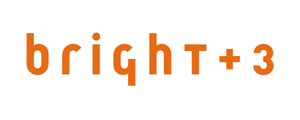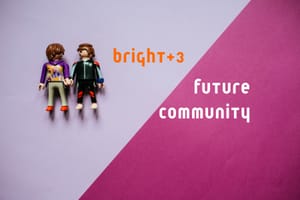Hello and welcome to Future Community! We're talking about year-end fundraising, meeting this moment - a perilous one for nonprofits and activists, and sharing about 30 new jobs including this one at Analyst Institute. 👇
First, a big shout out to new Future Community subscribers 👋.
Welcome Rebecca, Karen, Alexis, Sarah, Steffen, Jessica, Abigail, Mickey, Rachael, Shane and Kevin.
Hit reply to say hello, ask questions, or let me know how I can be helpful with the content here, your content and fundraising work, or a job search.
Turn Year-end Fundraising into a Big Old Barnraiser of a Gathering
It's year end fundraising time and I’m rereading Priya Parker's The Art of Gathering: How We Meet and Why it Matters for some guidance and inspiration.
Earlier this week I was reminded (again) of the profound power of gathering and connecting people. Hats off to Lex Roman's Legends mixer!
I wonder if we, as nonprofits and companies and even communities with big constituencies and big budgets and big to do lists, have forgotten about gathering.
This isn’t about “throw a big party.” Though I’m not opposed to that. More parties. Fewer emails. That world sounds good.
It’s about the little bits and pieces of connection, respect, joy, warmth, and strength that gathering builds.
Parker writes at the top of the book about the power of gathering: Gathering–the conscious bringing together of people for a reason–shapes the way we think, feel, and make sense of our world.
Perhaps there’s no greater gift we as changemakers can offer our supporters than the opportunity to make sense of the world.
So what does that look like in the context of year end (or any time of year) fundraising?
🏹 Be clear about your purpose - and your supporter’s purpose.
Say what you’re doing. Say why you’re doing it. Say why it matters. Directly. In plain language.
💜 Be passionate about your purpose and finding those who also care about it.
Bring people together. Talk to them. Listen to them. Let the rest go. Our lists are full of people who aren’t interested or aren’t ready for us. If we try to please them we confuse those who matter. Nobody wants to wonder why they were invited to the party.
🗣️ Speak loudly about what matters.
Be clear about what can be done, why this donation you’re asking for right here right now is freaking valuable.
Commit to it. And ask for commitment. Don’t be casual.
🗺️ Create a world where action and change aren’t just possible, they happen.
Describe this world. Talk to people about it. Listen to them. Show them how they can be in it and make it possible. Nobody wants to buy a ticket to a theoretical party.
🪦 “Never start a funeral with logistics”
This chapter title from Parker's book is one of my favorites. Don’t get lost in the data, the testing, the receipts, the automations. All that matters. But, for a potential donor - whether it’s $10 or $10,000 - it’s also about feeling accepted, heard, joyful. Light a fire under folks, don’t bore them with process.
I also want us to do less "campaigning" that approaches fundraising as a something to win, a time to "beat last year's numbers."
It takes the joy, hope and fun out of the fundraising and the giving. I know more than a few of you travel along similar paths at the intersection of community and fundraising.
What do you think? Is there the intersection of gathering and fundraising a place to focus our energy?
About this Moment
I spent much of the 2010s tracking the rise of authoritarians around the world and how activists and campaigners were responding. US activists were constantly being asked for guidance on how to run online campaigns, use digital tools, social media and more.
These folks now have a lot to teach us about responding to closing civic space, restricting press freedom, and potential direct threats to organizations and leaders. Here are a few recently spotted resources (videos, mostly):
- Maria Ressa - Fighting Back Against Trump’s Authoritarian Algorithm With Truth. From a recent Daily Show episode.
- Are These Global Strategies the Key to Protecting U.S. Civic Space? A short guide with additional resources via Carnegie Explains.
- Precedented is a collection of short interviews and talks from leaders in Uganda, Russia, Hungary and elsewhere. Via Stroika.
Bright Ideas
A few smart reads...
- How the Toronto Star built an engaged news community by Ulrike Langer on News Machines. Smart uses of AI to support better engagement with comments. But what I like most is the lean into authenticity and opening up paths for direct engagement with journalists, staff, and the community news people care about.
- Jimmy Kimmel's reinstatement shows the power of noncooperation by Joe Worthy for Waging Nonviolence. Want to break down power? Find the pillars holding that power up and break them down. In many cases, it's our continued participation in the economy that props up authoritarian power.
- How L.A.’s Playbook Can Guide Chicago’s Fight Against ICE by Ivan Fernandez at L.A. Taco. Chicago local news outlets like The Triibe, Unraveled Press and The Chicago Reader are collaborating and learning from local news orgs in Los Angeles and Washington, DC.
- The AI Therapist Epidemic: When Bots Replace Humans by Irina Matchavariani in Coda. A first hand account of why treating the messiness of human existence shouldn't be left in the hands of large language models.
- AI Generated "Workslop" is Destroying Productivity in Harvard Business Review. "And," he says while clutching his pearls, "we certainly can't abide lost productivity."
- Against the Uncritical Adoption of 'AI' Technologies in Academia by a large group of Dutch professors. Most useful here is the recognition that much of AI has just foisted upon us by tech companies without our permission, awareness, or education. So of course we get "workslop" (see above), wasted time, and careless/lazy uses that harm critical thinking.
- How Can We Live Together? by Olúfẹ́mi O. Táíwò in Boston Review. In a piece about Ezra Klein and shame (or the lack thereof), Táíwò concludes:
it would be ideal if he understood what liberal and egalitarian values are and what they demand of him and catered to that, rather than to the personal expedience of reading lines from the script of a fascist movement eroding basic democratic freedoms and aiming to subordinate whichever large swaths of the country are not simply removed outright.
Indeed. We're not a polarized nation. We're one that's long been riven by white christian nationalists and corporatists who have now found a path to public power in the form of MAGA-ism. Let's at least be honest about what we're doing here and start from reality, not accommodation.
Future Community Jobs
These are the latest links. Check out the full job list here. Want to post a job? Send an email. Want to get a featured job out into this amazing community? Learn more here.
🗣️ Communications
Mostly at nonprofits/NGOs
- Director of Communications and Engagement : Berkman Klein Center for Internet and Society at Harvard University [Boston / Remote in several US states]
- Senior Communications Specialist : AFSCME [Washington, DC]
- Digital Communications Manager : Americans for the Arts [Washington, DC]
- Public Interest Communications Strategist : Fred and Barbara Erb Family Foundation [Birmingham/Detroit, Michigan]
- Senior Manager, Communications and Digital Marketing : FSG [Remote in the US]
⚡ Nonprofit organizations
- Executive Director : Every Texan [Remote in Texas]
- Senior Legislative Director : California Environmental Voters [Sacramento]
- Finance Director : Southern Utah Wilderness Alliance [Salt Lake City]
- Deputy Campaigns Director and People Operations Manager : Rebuild Local News [Remote in the US]
- Chief Marketing Officer : Americans for the Arts [Washington, DC]
- Director, Legal Strategy : National Immigration Law Center [Los Angeles / Washington, DC]
Over 1,000 amazing people read Future Community. I know a lot of them personally.
Some are hiring.
Many are looking for a role.
Reach out if you want help finding or filling a role.
I have some ideas for you.
💰 Fundraising and Development
- Director of Development : Analyst Institute [Remote]
- Chief Development Officer : Vera Institute of Justice [New York City]
- Director of Institutional Development : Galvanize USA [Remote in the US]
- Development Director : Save Mount Diablo [Walnut Creek, CA]
- Development Manager : Rebuild Local News [Remote in the US]
- Associate Director of Development : Nonprofit Vote [Remote in the US / Boston]
- Associate Director, Mass Marketing Fundraising & Supporter Engagement : HIAS [Silver Spring, MD / New York City]
- Mid-Level Giving Manager : Earthjustice [Remote in the US]
💸 Foundations and Philanthropy
- Program Director : Hive Fund [Remote / Southeastern US preferred]
- Director of Philanthropy Partnerships : Climate Breakthrough [San Francisco preferred / Remote]
- Regional Director, Africa : Thousand Currents [Remote in Africa]
- Associate, Equality Fund : The Boston Foundation [Boston]
💻 Agencies, politics, products, projects & more
- Technologist (Medicaid and other public benefit systems) : TechTonic Justice [Remote]
- Senior UX/UI Designer : Teal Media [Remote in the US]
- Director, Corporate Editorial and Storytelling : Chime [Remote in the US]
- Senior Manager, Policy Communications : Chime [Washington, DC]
- Chief Brand Officer : Working Families Party [Remote in the US]
Future Community is a product of Ted Fickes and Bright+3. Reply or visit Bright+3 to get in touch and learn more about our work.

